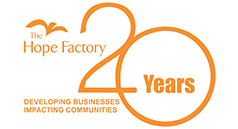Our entrepreneurial State of the Nation Address
Published by Business Essentials, www.businessessentials.co.za
It is true that finances do indeed have an amazing ability to succinctly locate where one's true focus and priorities lie. South Africa has been characterized by an environment of low GDP growth and high government spending resulting in a huge fiscal deficit. Growth has been forecast at about 0.9% for 2016 but rating agencies are predicting lower growth rates. From this background, we give a brief review of the most recent South African national budget speech with particular focus on the role of entrepreneurship in our economy.
The overall message in the budget speech delivered by Finance Minister, Pravin Gordhan, at the end of February was one of tightening and not expansionary due to our current economic climate. As sluggish economic growth continues, as well as uncertainties due to power supply generation and impact of the ongoing drought, cut down on spending and prudency was the theme of this budget. When we look at budget allocations announced in Minister Gordhan's speech, we see it is mostly consumptive spending.
While at the top level entrepreneurship and skills development are highlighted as key focus areas for South Africa's economy to grow sustainably, budgetary allocation to these indicate a lack of sufficient commitment as too little money has been put towards these areas. This suggests that more focus is required on the impact from entrepreneur development initiatives taking place all over the country. Impact is key. Not just how much spending has been poured into entrepreneurship development, but evaluating the actual outcomes and impact.
There has been very little research conducted on the impact of entrepreneur development in South Africa. Post the latest national budget, some of the critical questions arising are:
1. Are we as South Africans really committed to growing entrepreneurship as a viable catalyst for economic growth and transformation? Are we willing to really support increased participation of more SMMEs to this end? Parties involved in this entrepreneurial development space need to collaborate more and find joint solutions. The Small Business Ministry needs more support from a fiscal perspective as well as from players within the development space – a need to combine our resources and pool our knowledge.
2. Do we have a common understanding of the day to day impediments for entrepreneurs in this country to grow and develop viable and sustainable businesses? Is there still too much red tape associated with starting and running your own business? Our research shows that essentially, what a SMME owner has to know for compliance and governance is similar to what the CEO of a big corporate need to understand. The scales are just larger but compliance is non-negotiable.
3. How can we all get involved? Should entrepreneurship development reside only in the Small Business Ministry or be a measured outcome in all government departments and ministries?
The question remains – how can we incorporate small businesses more into the primary economy value chain?
On a positive note, the 2016/17 national budget has remained consistent in incentivizing small business owners from a tax perspective. Income Tax for Small Businesses has remained the same with micro business, startups and less than R250k exempted, which should encourage business startups. However it must be remembered that even though they don't pay tax, they still have the regulatory environment to comply with. There seems to be a lack of attention for this Micro level, from a support point of view. However the Finance sector including banks and DFO's are increasingly involved in entrepreneur development and provide financing structures that are accessible and appropriate for small businesses. What does however need to be addressed is the cost of funds for SMMEs. The small business owner shouldn't be paying a higher interest rate than big corporates, even if the perceived risk is there. Government should work with funding institutions to see how to provide more affordable finance to these growth entrepreneurs.
How do we support SMME's? We can provide ‘enablers' by providing knowledge and finance-based support, and platforms to showcase their capabilities; encouraging partnerships at small and micro-business levels; stopping silos and encouraging working together to benefit from economies of scope and scale; upskilling; and increased knowledge sharing. At The Hope Factory, we are passionate about entrepreneurship and small business development. We offer mentorship programmes to grow the person, develop their businesses and in turn impact the communities within which they operate.
Working together is key, and action is required beyond the dialogue. There is a latent potential which needs to be cultivated and we need to encourage these informal and micro businesses to take their businesses to the next level of growth.










